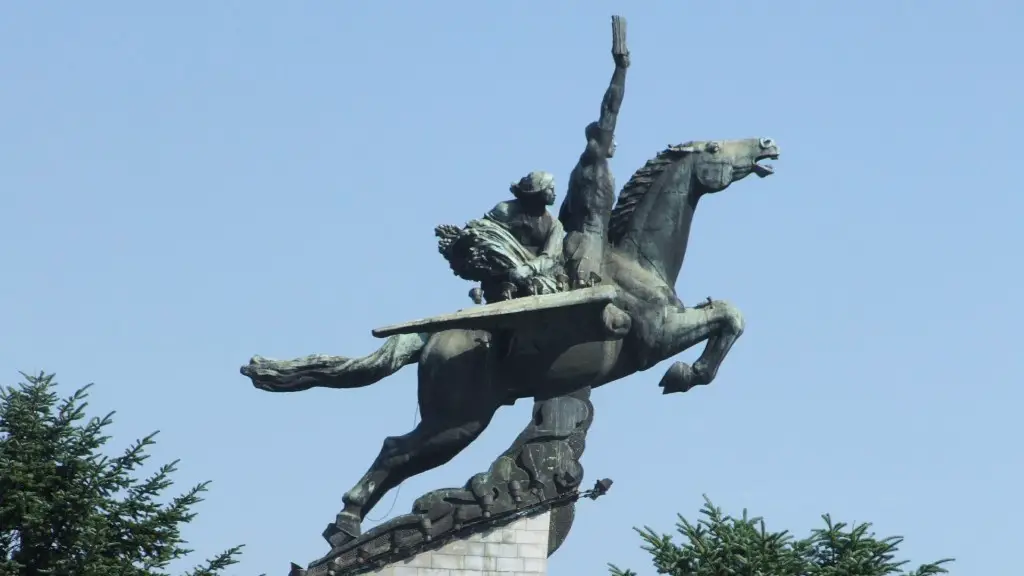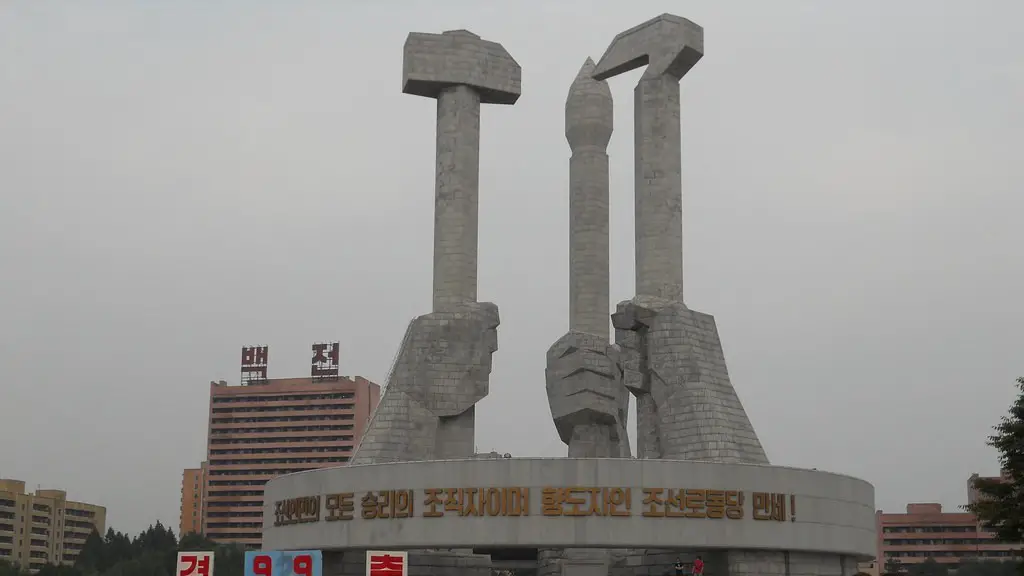Economic Sanctions
Economic sanctions are among the most effective tools to deter North Korean aggression. Over the years, the United Nations, the United States and other countries have imposed a variety of sanctions on North Korea targeting its economy and limiting the sale of certain goods. One of the most effective sanctions has been the UN-mandated cap on oil exports, which severely limits North Korea’s ability to buy and sell fuel. Other sanctions have included restrictions on the movement of people and goods, the sale of luxury items, and the import and export of military materials.
Sanctions can have a powerful impact on North Korea’s economy. A recent report by the Congressional Research Service found that the sanctions have cost North Korea more than $1 billion annually in lost trade. This figure doesn’t take into account the impact of lost foreign investment, which is also a key component of economic sanctions. The impact of the sanctions has been particularly acute in North Korea’s struggling agricultural sector.
In the past, North Korea has responded to the sanctions with defiance and provocations. But the recent shift in approach by North Korea’s new leader, Kim Jong-un, in engaging in peace talks with South Korea, is a sign that the sanctions are having some impact.
Systematic Change
Change within North Korea could be the key to stopping its nuclear ambitions. For years, North Korea’s human rights abuses have gone unchecked and its citizens have been denied basic freedoms and economic opportunity. To change the current system, the international community must become more engaged in pushing for systematic change.
The United Nations has already taken some steps to address North Korea’s human rights violations. In 2014, the UN Human Rights Council unanimously passed a resolution condemning North Korea’s “systematic, widespread and gross violations of human rights” and calling on the country to reform its domestic policies. The resolution also proposed creating a commission of inquiry to investigate the abuses and make recommendations to the Council.
North Korea has so far refused to cooperate with international investigators, but concerted diplomatic pressure could help change the situation. In addition, targeted sanctions on the individuals and organizations responsible for the abuses could send a strong message to North Korea’s leaders.
Military Deterrence
The most effective way to deter North Korean aggression may be military deterrence. In recent years, the United States and its allies in the region have steadily increased their military presence in the area. This includes the deployment of ships, aircraft, and troops to South Korea, as well as joint military exercises with other countries.
The presence of US and allied troops serves as a deterrent to North Korea. It sends a strong message that any aggression by North Korea will have swift and serious consequences. The US has also made clear its commitment to South Korea’s defense, which serves as a further deterrent for North Korea.
In addition, the US and its allies have sought to boost the region’s defense capabilities by providing weapons and other military aid to South Korea and Japan. These efforts have helped to strengthen regional security and increase the confidence of South Korea and other countries in the region.
Regional Pressure
Regional pressure is also important. In recent years, the United States and other countries in the region have sought to convince China and Russia to put greater pressure on North Korea. China is North Korea’s main trading partner and Russia has a historical relationship with the country, which gives both countries leverage over North Korea.
The United States has sought to convince both countries to take a more proactive role in convincing North Korea to abandon its nuclear weapons program. The US has also called on China and Russia to limit their trade with North Korea in order to limit the country’s access to resources that it could use to finance its activities.
The US and its allies have made some progress in convincing China and Russia to take a more active role in addressing the situation. However, both countries have remained hesitant to act, likely out of fear of provoking a military confrontation between North Korea and the US.
International Cooperation
International cooperation is essential to solving the North Korean problem. Countries must work together in order to ensure that sanctions are enforced and that North Korea is adhering to international standards on human rights. In addition, countries must also commit to working together diplomatically in order to reach a peaceful solution to the crisis.
International cooperation can also be beneficial in ensuring regional stability. Countries in the region must commit to working together in order to address the security concerns posed by North Korea’s nuclear and missile programs. Countries must also seek to engage North Korea diplomatically in order to ensure that the country remains on a peaceful path.
The United States has long sought to engage with North Korea diplomatically and has worked to build diplomatic bridges with the country. Such efforts have been successful in the past and could help to bring about a peaceful resolution to the crisis.
Domestic Pressures
One of the simplest ways to influence North Korea is to increase the pressure on its domestic politics. North Korea’s leaders rely heavily on their control of information and domestic propaganda to remain in power. By increasing the flow of outside information and encouraging domestic dissent, the international community can help to chip away at the regime’s authority.
International media outlets have sought to do this by broadcasting into the country and working to bring outside information and news to North Korea’s citizens. In addition, international organizations have sought to develop technology that would allow North Koreans to access the Internet in order to gain access to a wider range of news and information.
Domestic pressure can also be useful in convincing North Korea to pursue economic reform. If the people of North Korea can be convinced to push for economic reform, it could be a powerful signal to North Korea’s leaders that reform is necessary.
Cultural Exchanges
Cultural exchanges can also be a powerful tool in convincing North Korea to change its behavior. North Korea’s citizens largely remain isolated from the rest of the world and are often subjected to restrictive policies by the regime.
Cultural exchanges such as exchanges of students, dignitaries, and academics, can help to bridge the gap between North Korea and the rest of the world. Such exchanges can help to create dialogue between the two sides and normalize relations. They can also provide a platform for North Korean citizens to learn more about the outside world and gain a better understanding of other countries and cultures.
Additionally, cultural exchanges can help to open up economic opportunities for North Koreans. The exchanges can help to create economic links between North Korea and the rest of the world, potentially providing the country with access to much-needed resources and investments.
Humanitarian Assistance
Humanitarian assistance is also an important part of any effort to stop North Korea. Despite the regime’s human rights abuses and its refusal to cooperate with the international community, the people of North Korea remain in need of assistance.
The international community has long provided humanitarian aid to the country, including food and medical aid. Such aid is essential to helping the North Korean people, but it also plays an important role in deterring North Korea’s aggression. By showing the North Korean people that they are not ignored and are in fact cared for, the international community can help to create goodwill and foster a sense of trust between North Korea and the rest of the world.
In addition to providing aid, countries should also seek to establish strong diplomatic ties with North Korea. Through diplomatic dialogue, countries can work to address both the country’s internal issues and its external behavior. Such dialogue can create a channel for countries to express their concerns and interests, and can ultimately help to lead to a peaceful resolution of the situation.


